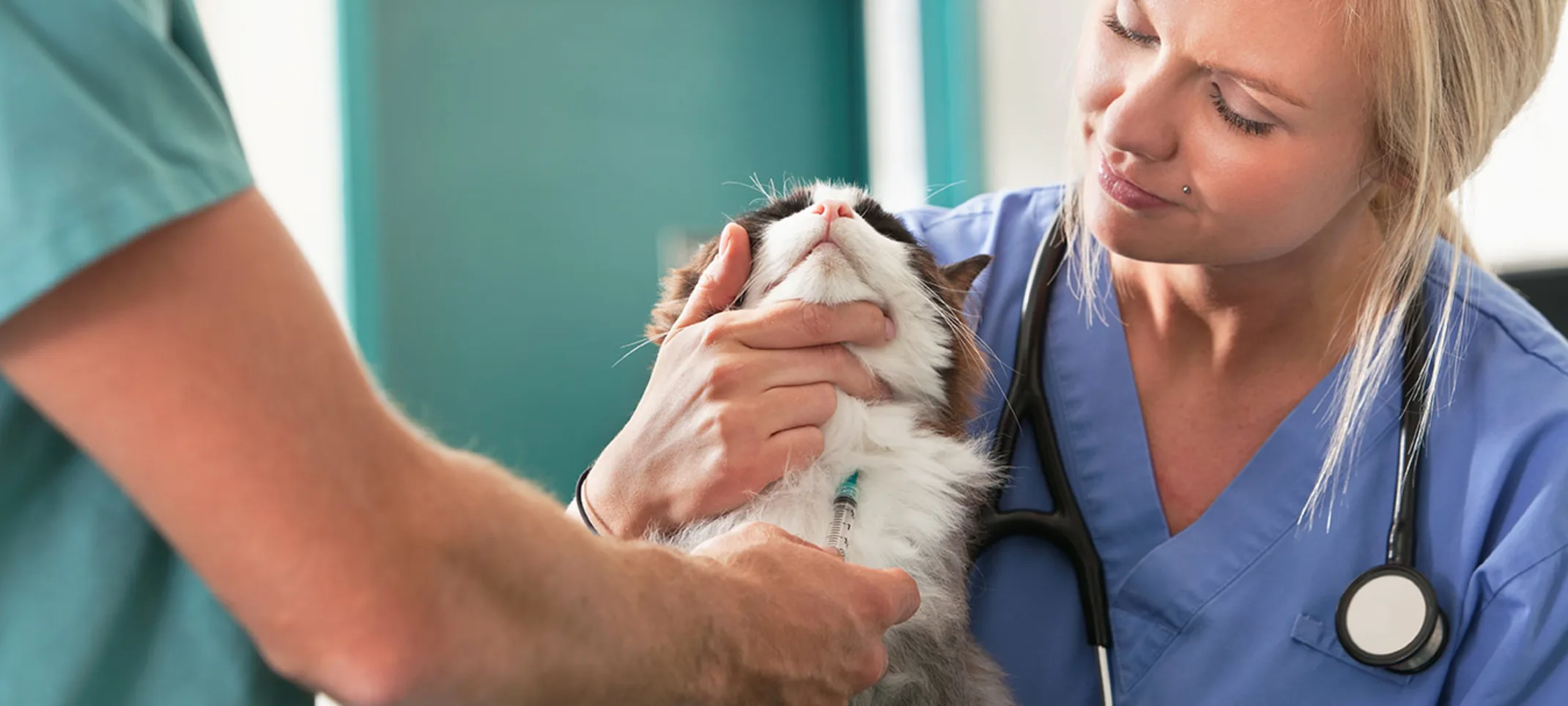Court Street Animal Hospital
Laboratory Services
Diagnostic testing can identify problems your pet may be experiencing so that proper treatment can begin before a condition worsens.

Overview
Unfortunately, pets can’t tell us where it hurts, and oftentimes, a healthy appearing animal may be masking symptoms of disease or illness. We recommend veterinary diagnostic testing to identify any problems and to begin treatment as early as possible. These tests are especially helpful when symptoms are unspecific or hard to define.
In-House Laboratory at Court Street Animal Hospital
Our in-house laboratory greatly expands our capabilities:
It allows us to perform pre-anesthetic testing the same day as surgery. This gives us the most accurate and up-to-date results and saves our clients from having to make an additional visit for a blood draw several days prior to surgery.
It allows us to quickly diagnose illness and disease while the owner waits. With this information in hand, we can initiate treatments earlier and achieve a more positive outcome.
Most importantly, the in-house laboratory allows us to respond rapidly and appropriately to critical or emergency cases. Patients who are unstable or changing rapidly don't have the time to wait for the blood to be sent to a distant lab. We can rapidly diagnose disease and track our progress toward recovery without ever leaving our patients' side.
When would laboratory work be needed?
Most laboratory work is done through routine wellness exams as directed by our doctors. For emergencies or unscheduled visits, our diagnostic lab will run various tests to determine the best treatment for your pet.
We recommend regular tests to determine your pet’s health. If any concerns or conditions are found, we will help you decide on proper treatment. If your pet is showing irregular behavior, please schedule an appointment as soon as possible. Our doctors will determine which laboratory services are appropriate during your exam.
How do veterinarians use laboratory work?
To ensure a proper diagnosis, we first examine your pet by looking at their eyes, ears, and skin; then we check their cardiovascular, neurological, gastrointestinal, and skeletal systems for any abnormalities. We will then perform blood and/or urine tests if necessary to check their kidneys, liver, pancreas, and endocrine system. Based on your pet’s condition, we may recommend further diagnostic testing.
If you’re concerned that something may be wrong with your pet, please call us to schedule a medical assessment.
